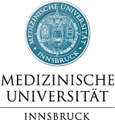Mittwoch, 07.12.2022
Gender Equality Paradox: A Robust Phenomenon, Statistical Artifact or Wrong Framing?
17:30 - 19:00 Uhr
Fakultätssitzungssaal, 3. Stock SOWI, Universitätsstraße 15, 6020 Innsbruck
Anmeldung ist nicht erforderlich
Eintritt / Kosten: keine
Vortragende/r
Gordey Yastrebov
Gordey Yastrebov is a postdoctoral researcher and lecturer at the Institute of Sociology and Sociology in Cologne (Chair of Methods of Empirical Social Research). Before Cologne, he worked in similar positions at the University of Bamberg and the National Research University Higher School of Economics in Moscow, and completed his doctorate in Social and Political Sciences at the European University Institute in Florence. His research and academic expertise revolves around the issues of social an
Weitere Informationen
The Gender Equality Paradox (GEP) refers to the counter-intuitive findings that men and women tend to be more different from each other in more affluent and gender-egalitarian societies. The paradox has been documented for basic human values (Schwartz and Rubel-Lifschitz 2009), a variety of personality traits (Schmitt et al. 2008; Mac Giolla and Kajonius 2019), preferences concerning time, risk, and social interactions (Falk and Hermle 2018), subjective well-being (Zuckerman et al. 2017), moral judgments (Atari et al. 2020), and aspirations for and choice of scientific, technical, engineering, and mathematical (STEM) educations and work (Charles 2017; Stoet and Geary 2018; Breda et al. 2020). The fact that gender differences tend to be more pronounced in countries, committed to promoting gender equality, is indeed paradoxical. However, there is still disagreement in the literature as to whether the paradox is a robust phenomenon and whether national gender-egalitarianism and gender differences in preferences and choices can be causally linked (Fors Connolly et al. 2020; Richardson et al. 2020; Marsh et al. 2021).
Veranstalter
Research Area EPoS – Economy, Politics & Society
Universität Innsbruck
Universitätsstraße 15
6020 Innsbruck
Österreich
Eva Zipperle-Mirwald
507-39870
epos@uibk.ac.at

